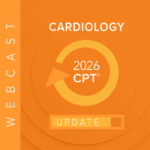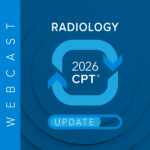As it pertains to an important issue first raised in October 2016, CMS last week made a key change, effective Jan. 1, 2018.
In a surprise move last week, the Centers for Medicare & Medicaid Services (CMS) agreed to pay for outpatient dialysis for patients with acute kidney failure (AKI) who are being treated in skilled nursing facilities (SNFs).
Case managers, physicians, and patients for years had been frustrated by the lack of CMS coverage of dialysis for AKI. While there was coverage for dialysis for patients with end-stage renal disease (ESRD), it was not until Jan. 1 of this year that CMS agreed to pay for outpatient dialysis for patients with AKI, establishing HCPCS code G0491 for billing each dialysis session.
But that policy change still left a gaping coverage hole: dialysis coverage for AKI patients who were receiving care in an SNF. But that all changes on Jan. 1, 2018, when CMS will start to pay outpatient dialysis centers for performing dialysis on AKI patients who are in a SNF under Part A.
Dialysis for patients with ESRD is paid under a complex program in which physicians and dialysis centers receive a monthly payment to provide all the ESRD-related care required by the patient. To qualify for this payment structure, the physician must complete form 2728, titled the End Stage Renal Disease Medical Evidence Report Medicare Entitlement and/or Patient Registration. This form requires the physician to attest, under threat of fine or imprisonment, that a patient’s renal impairment is irreversible. Because of this wording, most nephrologists are reluctant to sign the form until they are certain that the patient will not regain kidney function. There is a belief that if they sign the 2728 and a patient stops requiring dialysis, their practice may be subject to audit and possible sanctions.
When a Medicare patient is admitted to a SNF under Part A, the cost of the majority of their care is the responsibility of the SNF under the Medicare payment structure called consolidated billing. This program is often a hindrance in getting patients on long-term intravenous antibiotics accepted to a SNF, since the cost of the medication falls into consolidated billing. The consolidated billing program also includes a series of services that are excluded from consolidated billing and therefore are paid separately by Medicare to the provider. This includes all physician services, most ambulance transportation, chemotherapy, and a series of outpatient hospital services that CMS has described as “so exceptionally intensive, costly, or emergent that they fall well outside the typical scope of SNF care plans,” including emergency department visits, outpatient surgery, advanced imaging, and dialysis for patients with ESRD.
If a patient with ESRD is admitted for a Part A stay in a SNF, the costs of the dialysis and transportation to and from dialysis are excluded from consolidated billing, so SNFs generally are willing to accept such patients for a Part A stay. But if a patient developed AKI and the physician determined that their need for dialysis is not permanent, yet that patient requires post-hospital rehabilitation at a SNF, their dialysis was not excluded from consolidated billing – and therefore, the cost was the responsibility of the SNF. In many cases, the SNF refused the referral, stating that the dialysis cost leaves no funds available to pay for the rest of the patient’s care. As a result, hospitals would keep the patient hospitalized until they either were able to go home and receive outpatient dialysis or no longer required dialysis.
Now that CMS has added HCPCS code G0491 to the consolidated billing exclusion list, again, effective Jan. 1, 2018, SNFs should be willing to accept patients with AKI who have a qualifying inpatient stay and now require skilled nursing care in a SNF, along with dialysis.
As noted, ambulance transportation to and from the dialysis facility is already covered. This addition by CMS should allow hospitals to better transition patients to the location where they will receive the most appropriate care and have the best opportunity to recover.
You can read the transmittal on billing HCPCS G0491 online here:
https://www.cms.gov/Regulations-and-Guidance/Guidance/Transmittals/Downloads/R1725OTN.pdf
You can find the SNF consolidated billing exclusion list for 2018 here: https://www.cms.gov/Medicare/Billing/SNFConsolidatedBilling/2018-Part-B-MAC-Update.html










